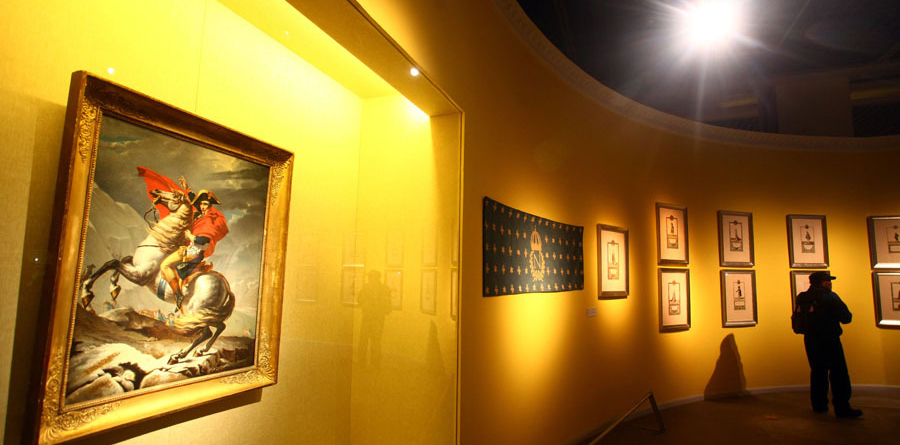France studies to promote bilateral exchanges

Personal belongings of Napoleon Bonaparte and some of the most famous portraits of the French emperor are on display at the Nanjing Museum in Jiangsu Province from April 4 to June 28 at an exhibition titled “The Eagle over Europe—Napoleon 1769-1821.” The exhibition showcases a total of 208 relics, including paintings, documents, clothing and furniture that reflect the life of this pivotal figure of history.
China and France face the common challenge of working toward a multipolar world. The two nations have distinctive national cultural characteristics that make them capable of shouldering the shared responsibility of constructing a more colorful, fair and equal international community, scholars said at a recent symposium.
At the symposium, themed “France Studies in 30 Years: Focus and Reflection” and held at Fudan University from June 13 to 14, scholars in attendance reviewed the current achievements and characteristics while looking at trends in France studies in China as well as the future of bilateral relations. They noted that the development of France studies in China will boost cultural dialogue between the two nations.
Shen Yannan, a senior research fellow at the Institute of National Strategies under Tsinghua University, said that relations between China and European countries tend to emphasize only one dimension, such as economics, politics or culture, but relations between China and France are comprehensive, setting an example for relations with the European continent as a whole.
Shen said there is an overemphasis on the study of European integration in Chinese academic circles, however, country studies should not be neglected, because the state is the main player in the international arena, and integration is accomplished by individual countries.
Now that the global pattern has reached a turning point, country studies appear to be more essential, Shen said.
Wang Kun, deputy dean of Beijing Foreign Studies University’s French department, said that the bilateral relations have been in flux over the years, and the discipline of France studies reflects this.
“The history of France studies in China offers a window into the nation’s changing perspective on globalization—from an outsider to an active player,” Wang said.
Since the reform and opening up, China’s international status has been on the rise, creating a new demand for France studies, said Zhu Xiaoquan, director of the Center for France Studies at Fudan University.
Within the framework of the Cold War, the older generation of scholars mainly focused on the political and cultural fields. In recent years, the discipline has begun to transcend boundaries and is further enriched by increasing people-to-people exchanges, laying a foundation for mutual understanding and trust, Zhu noted.
Wang said France studies is developing from purely descriptive research into a comparative discipline, making it more application oriented, diverse and interdisciplinary.
With regard to research methodology, the development from a single discipline approach to a multidisciplinary, interdisciplinary approach is attributable to the expansion of the scope of research objects, Wang added.
Also, China-France relations have upgraded to a comprehensive strategic partnership so bilateral interactions are increasing, Wang said. In particular, high-level interpersonal and cultural exchanges prompt the rapid development of communication in the fields of education, technology, culture, arts, sports, health, and social and judicial issues exchanges as well as governmental, non-governmental, economic and trade exchanges.
Li Yu is a reporter at the Chinese Social Sciences Today.
